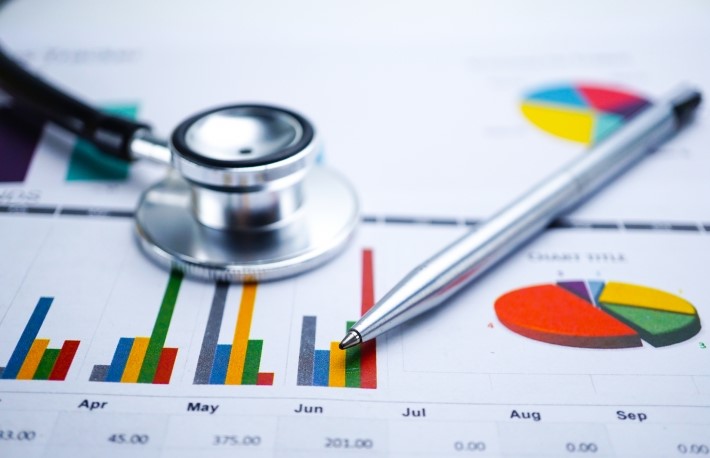In today’s rapidly evolving healthcare landscape, the integration of Health Data Analytics is revolutionizing the way medical professionals and institutions approach patient care. By leveraging vast amounts of data, health data analytics offers unparalleled insights that drive better clinical outcomes, optimize operational efficiency, and enhance patient satisfaction. This article delves into the multifaceted role of health data analytics in improving healthcare outcomes.
Understanding Health Data Analytics
Health data analytics refers to the process of examining large sets of health-related data to uncover hidden patterns, correlations, and insights. This data can come from a variety of sources, including electronic health records (EHRs), medical imaging, genomic data, and even wearable technology. By applying advanced analytical techniques such as machine learning, predictive modeling, and statistical analysis, healthcare providers can make more informed decisions that ultimately lead to better patient outcomes.
Enhancing Clinical Decision-Making
One of the most significant advantages of health data analytics is its ability to enhance clinical decision-making. Traditional clinical decisions were often based on a combination of physician experience and limited data points. However, with health data analytics, clinicians can access comprehensive patient histories, real-time data, and predictive models that suggest the best course of action.
For instance, predictive analytics can identify patients at high risk of developing chronic conditions such as diabetes or heart disease. By recognizing these risks early, healthcare providers can implement preventive measures, thereby reducing the incidence and severity of these conditions. Moreover, data analytics can assist in diagnosing complex cases by comparing patient data with vast databases of similar cases, thus improving diagnostic accuracy.
Optimizing Operational Efficiency
Beyond clinical care, health data analytics plays a crucial role in optimizing the operational efficiency of healthcare institutions. Hospitals and clinics generate a massive amount of data daily, from patient admissions and discharges to inventory management and staffing schedules. Analyzing this data can reveal inefficiencies and areas for improvement.
For example, predictive analytics can forecast patient admission rates, enabling hospitals to better manage their resources and reduce overcrowding. Additionally, data analytics can streamline supply chain management by predicting the demand for medical supplies and ensuring that they are available when needed, thus reducing waste and costs.
Enhancing Patient Engagement and Satisfaction
Patient engagement is a critical component of successful healthcare outcomes. Health data analytics can significantly enhance patient engagement by providing personalized care plans and improving communication between patients and healthcare providers.
Through the analysis of patient data, healthcare providers can develop tailored treatment plans that consider individual patient preferences, medical history, and lifestyle factors. This personalized approach not only improves patient outcomes but also increases patient satisfaction and adherence to treatment plans.
Furthermore, health data analytics can facilitate better communication through patient portals and mobile apps. These platforms can provide patients with real-time access to their health information, appointment reminders, and educational resources, empowering them to take an active role in their healthcare journey.

Advancing Population Health Management
Health data analytics is also instrumental in advancing population health management. By analyzing data from diverse populations, healthcare providers can identify trends and patterns that inform public health strategies and interventions.
For instance, data analytics can help identify communities at higher risk for certain diseases, allowing for targeted public health campaigns and resource allocation. Additionally, tracking the effectiveness of these interventions through data analytics ensures that public health efforts are continually optimized for better outcomes.
Supporting Research and Innovation
The role of health data analytics extends to supporting medical research and innovation. Researchers can analyze large datasets to uncover new insights into disease mechanisms, treatment efficacy, and potential side effects. This wealth of information accelerates the development of new therapies and medical technologies.
For example, in the field of genomics, health data analytics enables the identification of genetic markers associated with specific diseases. This information can lead to the development of targeted therapies and personalized medicine, significantly improving patient outcomes.
Addressing Challenges and Ethical Considerations
While the benefits of health data analytics are immense, it is important to address the challenges and ethical considerations associated with its use. One of the primary concerns is data privacy and security. Healthcare data is highly sensitive, and ensuring its protection is paramount. Robust data encryption, secure access controls, and compliance with regulations such as the Health Insurance Portability and Accountability Act (HIPAA) are essential to safeguarding patient information.
Additionally, the accuracy and quality of data are critical for reliable analytics. Inaccurate or incomplete data can lead to erroneous conclusions and potentially harmful decisions. Therefore, healthcare providers must invest in data quality management practices to ensure the integrity of their data.
Another ethical consideration is the potential for bias in data analytics. Algorithms and models are only as good as the data they are trained on. If the underlying data contains biases, these biases can be perpetuated in the analytical outcomes. It is crucial to continuously evaluate and mitigate biases to ensure fair and equitable healthcare delivery.
Conclusion
Health data analytics is a powerful tool that holds the promise of transforming healthcare delivery and improving patient outcomes. By enhancing clinical decision-making, optimizing operational efficiency, and advancing population health management, data analytics is paving the way for a more effective and patient-centered healthcare system. However, it is essential to address the associated challenges and ethical considerations to fully realize its potential.
As technology continues to advance, the integration of health data analytics will undoubtedly become even more integral to healthcare. By harnessing the power of data, healthcare providers can deliver more precise, efficient, and personalized care, ultimately leading to better health outcomes for all.










